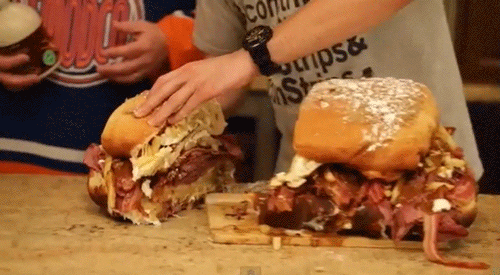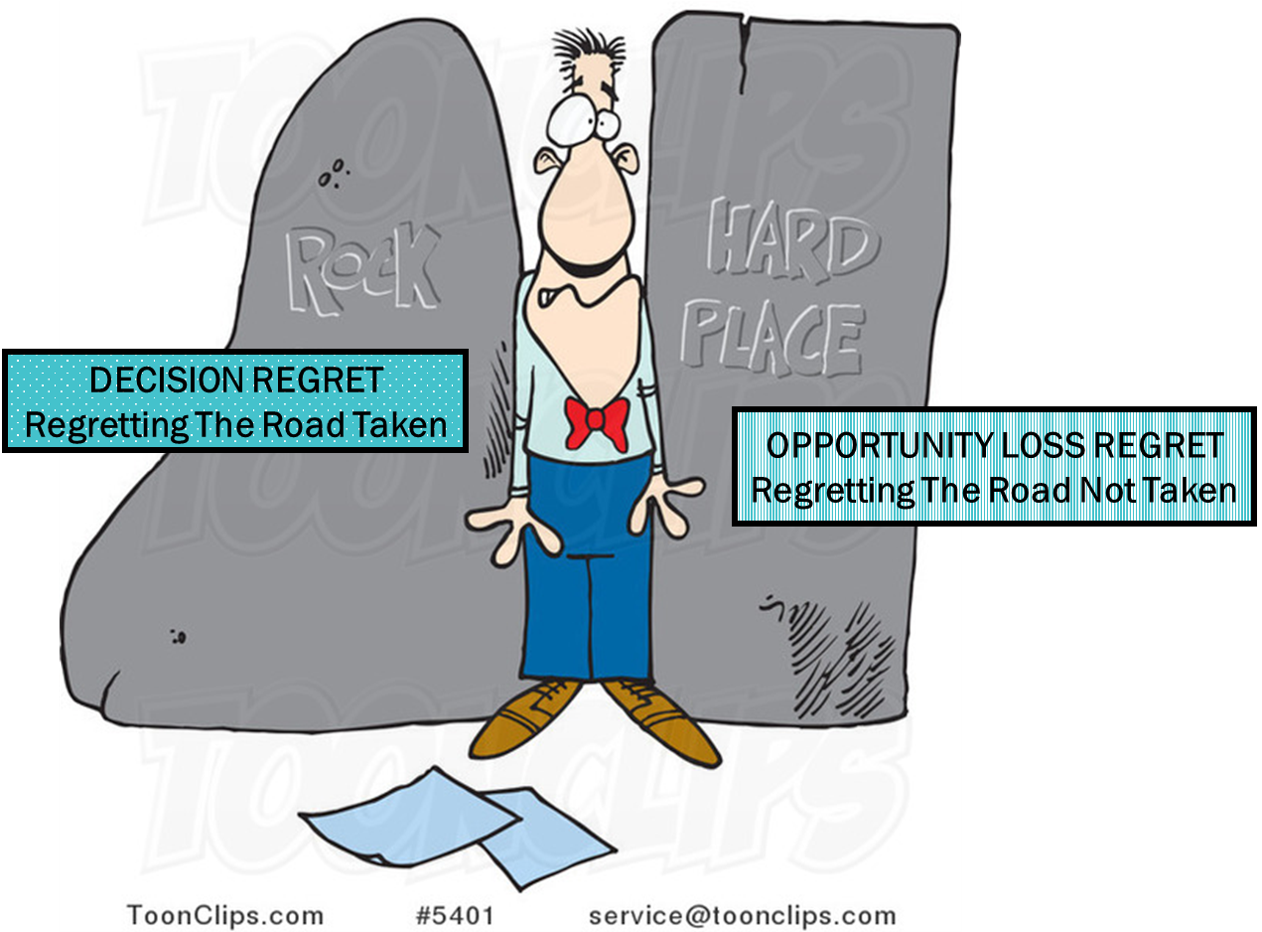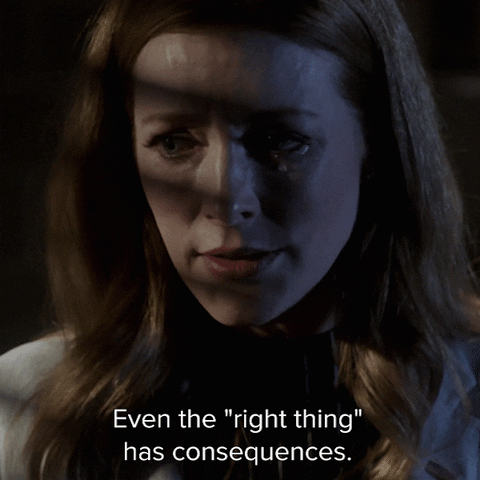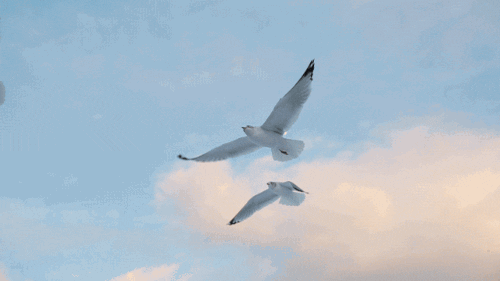I was inspired by Bastiat’s ‘The seen and the unseen’ idea. Bastiat said that if the immediate effects of any decision are good, then effects over time are bad and vice versa. That’s why, to see the unseen, economists have to strengthen their foresight muscle.
In the context of the unseen, we live our days bouncing between two unproductive states. The first is willful blindness (find this in the previous newsletter), the second is fear of the future – this is what today’s newsletter is about.
A regret of two paninis.
A few months ago, it was Diwali sale launch at Amazon. As is customary, we ring in the sale at midnight. At the hour, the new site goes live, and the entire company gathers around screens, cheering as the numbers start rising.
After two years of lockdown, and in a new city, I was a little bit excited and a little bit nervous about the midnight event.

So I turned to food for comfort. I wanted to try a 4.1 rated sandwich place called Paris Panini. I looked forward to enjoying the high from the sale with a side of their Honey Mustard Chicken Panini. I knew I would later feel guilty because this one had no veggies, so I also ordered a Veg Panini for ‘balance’. I decided to eat the veggie one first to ‘line’ my stomach with good fiber and also to save the best for later. But in all of the excitement of the sale, I never got to eat the honey mustard chicken, and had to throw it away.
I still think about the panini I actually wanted to eat, but guilted myself into not eating.

The panini decision was a low stakes one. But every once in a while, we are confronted with hard choices that have high stakes. And we let fear of unseen consequences screw with our heads.
How do we navigate the unseen when it comes to high stake choices?
Ruth Chang says we could try to reframe hard choices as opportunities.
In her powerful Ted talk, Ruth Chang says that when faced with hard choices, instead of worrying about the unseen, we should deliberately use the fork on the road to design the kind of person we want to be. I summarize what she says:
- Hard choices are hard because they present a decision between two equally good options. There is no complete ‘right’ or ‘wrong’ conclusion.
- That’s because not all pros and cons can be mathematically measured. Hard choices offer us ‘non rational’ value. For example, a lifestyle, weather of the place we choose to live in, or the kind of people we will work with.
- She says that it is precisely in these situations that instead of looking outside, we should look within and use the choices to actively decide what kind of person we wish to become.
Hard choices are precious opportunities for us to celebrate what is special about the human condition. That the reasons that govern our choices as correct or incorrect, sometimes run out. And it is here in the space of hard choices, that we have the power to create reasons for ourselves to become the distinctive people that we are. And that’s why hard choices are not a curse, but a godsend.
Ruth Chang
My friend R visited New York when he was about 3 years into his career. He decided that he preferred the NYC lifestyle to his Bombay lifestyle. There was no way to mathematically weigh the Bombay life vs. the NYC life. Both were good in their own way and also different. Choosing NYC led to many other decisions – who to marry, where to work, what kind of house to live in, what to wear, which car to drive. Eventually, the NYC R became a different person than the Bombay R would have been.
Is his life perfect? Maybe, maybe not.
But is there even anything like a perfect life?
While exercising our agency, can we take the consequences of each choice in our stride?

Matt Haig’s novel, The Midnight Library reflects on the infinite lives we could design for ourselves by just taking different decisions. In the book (spoiler alert!), Nora Seed is full of regrets over choices not made and feels she has wasted her life. She tries to commit suicide and ends up in the Midnight Library – a space between life and death.
Here, she gets a chance to experience all the alternate lives she regrets not choosing. The twist in the tale is that each alternate life is better than her current life in some areas, but also demands some sacrifices in other areas (death of a loved one.. etc.).
She realizes that there is no ‘ideal’ life. Each choice would have improved some parts, but made other parts worse.
In the end, she chooses the life she was running away from. But with the transformed mindset of making the most of the life she has chosen.
Nora escaped the coulda-woulda-shoulda trap.
And that got me thinking.
Isn’t it the unattainable that keeps us alive? Like Chekov’s Seagull?

The Seagull is a play written by Chekov. There are four main characters. Madame Arkadina, a middle-aged actress, her lover Trigorin, a successful writer, her son Konstantin, also a writer, and Nina, an aspiring actress. Konstantin’s love for Nina is unrequited. At the same time, Arkadina is jealous of Nina’s youth and talent. She also despises that her son loves Nina and so is cold and distant to him. Here also, Konstantin’s need for love is unmet.
Nina likes to refer to herself as a seagull. After repeatedly being spurned by Nina, Konstantin kills a seagull and shows it to her. Two years later, Nina rejects Konstantin again. This time, he kills himself while his unaware mother plays cards in the next room.
The seagull, soaring high up in the sky, symbolizes unattainable dreams. As long as the seagull is flying, we have hope that one day our dreams will come true. Killing the seagull depicts shattering of dreams.
Ironically, the unseen parts of our future keep us alive and hopeful. If we knew everything that was going to happen next, wouldn’t we stop trying? Don’t the surprises life throws at us keep the game of life fresh and exciting?
Without hope for the future, we might as well be dead.
